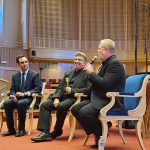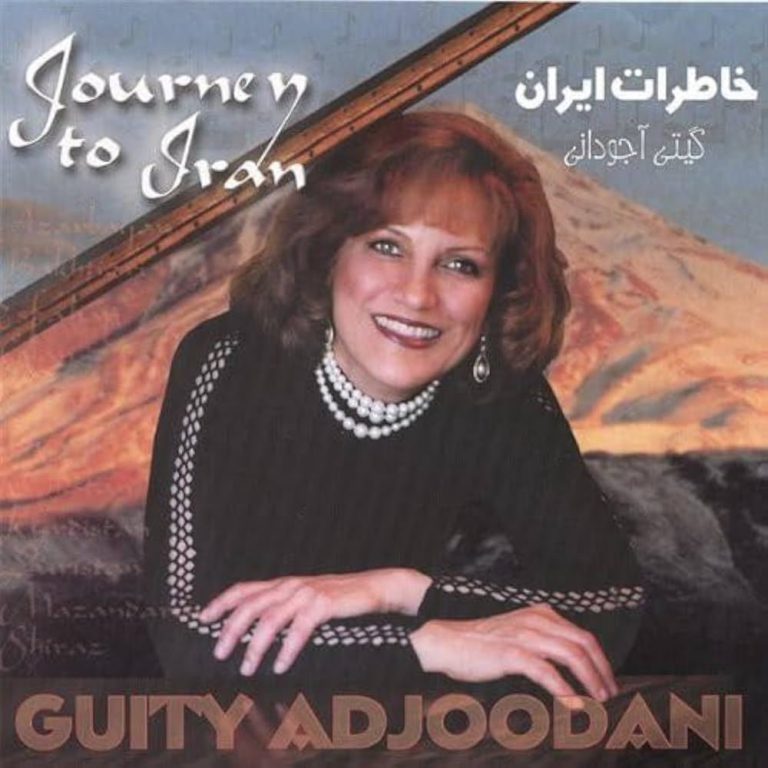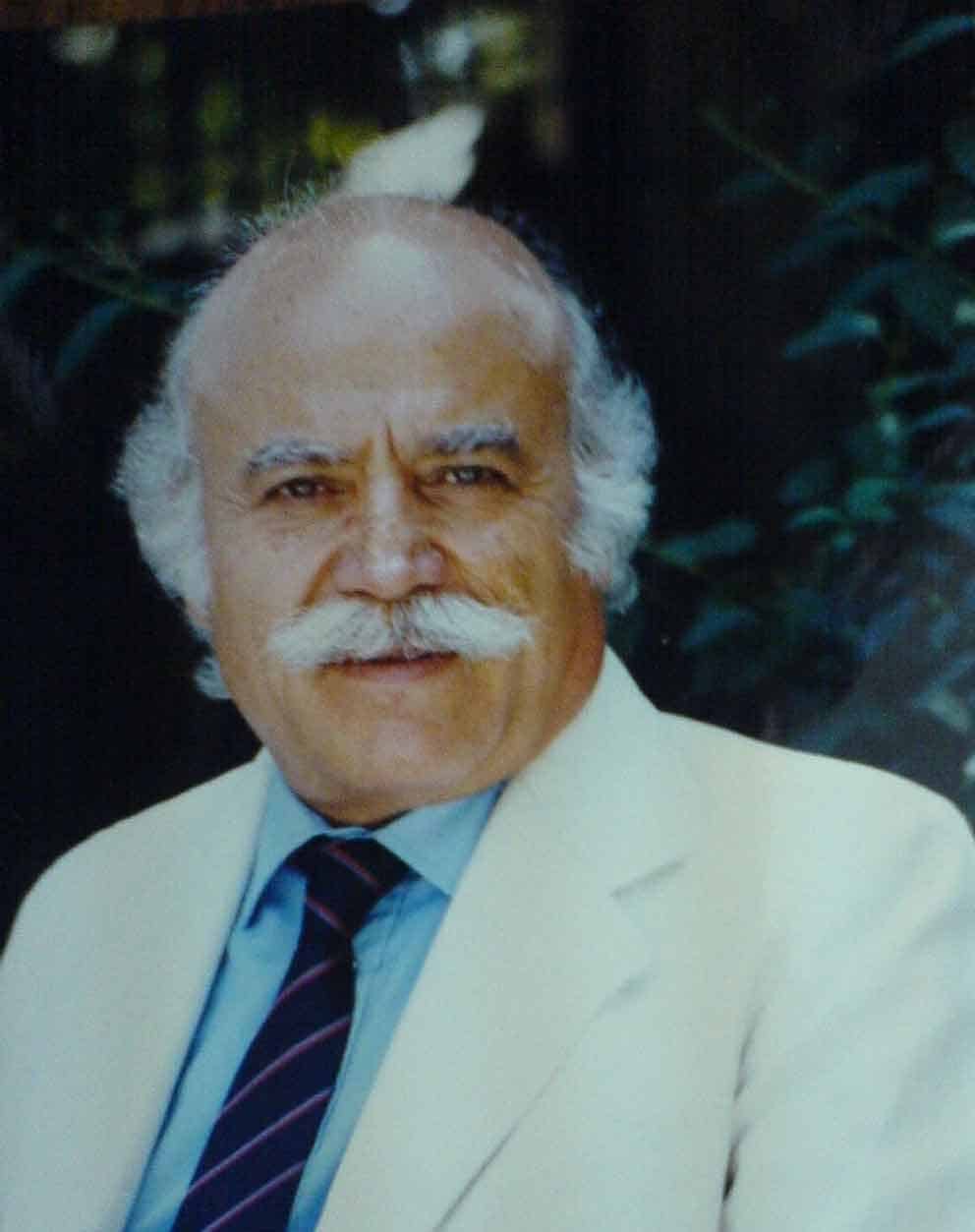The late 18th century was marked by profound societal changes across Europe, characterized by the rise of the bourgeoisie and the reshaping of musical patronage. Composers like Mozart responded to these shifts by adapting their compositional styles to align with the tastes and sensibilities of the emerging middle class. This article seeks to explore this phenomenon through an analysis of Mozart’s K. 499 quartet, also known as the “Hoffmeister” quartet, and his Prussian quartets, alongside the works of his contemporaries. By examining the evolution of the string quartet genre within the context of changing social structures and aesthetic preferences, this study aims to shed light on the dynamic relationship between music and society.
Tag Archives: String Quartet
Transition to Enlightenment: Six Lectures on Mozart’s String Quartets (5)
Transition to Enlightenment: Six Lectures on Mozart’s String Quartets (4)
The collaboration between Mozart and Haydn blossomed during the late 18th century in Vienna, a city that served as the epicenter of musical innovation. Amidst this vibrant cultural milieu, the two composers developed a profound friendship that extended beyond mere professional admiration. This connection is reflected in the six string quartets dedicated by Mozart to Haydn, aptly known as the “Haydn Quartets.”
Transition to Enlightenment: Six Lectures on Mozart’s String Quartets (3)
Wolfgang Amadeus Mozart, a musical prodigy of the Classical era, was deeply influenced by the intellectual currents of the Enlightenment. His exposure to Enlightenment ideas was multifaceted, shaped not only by the cultural milieu of his time but also by the relationships within his family and his own interactions with prominent figures of the Enlightenment. This exploration will delve into Mozart’s acquaintance with Enlightenment ideas through his father’s relationships and his own encounters with influential personalities of the era, including Christian Fürchtegott Gellert, Baron Melchior Grimm, Madame d’Epinay, and Joseph von Sonnenfels. Additionally, the essay will examine the impact of Joseph II’s reforms on Mozart’s life and artistic endeavors.
Transition to Enlightenment: Six Lectures on Mozart’s String Quartets (2)
Innovation and Creativity The Enlightenment era championed innovation, creativity, and the relentless pursuit of knowledge, values that resonate prominently in Mozart’s string quartets. Mozart, a luminary of the Enlightenment, used the quartet form as a playground for his inventive spirit, pushing the boundaries of traditional structures and harmonic progressions. Mozart’s innovative approach is evident in…
Read More
Transition to Enlightenment: Six Lectures on Mozart’s String Quartets (1)
Transition to Enlightenment: Six Lectures on Mozart’s String Quartets* Basic Ideas and General Structure The Enlightenment, an epoch of intellectual fervor marked by reason, individualism, and cultural evolution, indelibly left its imprint on the arts. Mozart, a luminary of this transformative era, intricately wove these ideals into his compositions, particularly his string quartets. This article…
Read More
Latest posts
- Transition to Enlightenment: Six Lectures on Mozart’s String Quartets (5)
- Nasser Masoudi: The Voice of Gilan and a Legacy of Iranian Music
- Farhad Poupel: The Voice of the Shahnameh in the Orchestras Around the World
- Five Major Myths About Mozart’s Life
- Bahma Rajabi Passed Away!
- Reza Vohdani; Unveiling unpublished works, preservation of Iranian classical music
- Ahmad Pejman Passed Away!
- Timeless or Timely: The Role of Historical Context in Defining Artistic Value
- Leading the Charge in Censorship
- The Legacy of Khosrow Jafarzadeh
- Transition to Enlightenment: Six Lectures on Mozart’s String Quartets (4)
- Fereydoun Shahbazian, An Iranian Musical Icon Passed Away
From Past Days…

Iranian Fallacies – Composition and Arrangement
In the tradition of classical music, it is generally tried to use the same technical terms related to music in all countries. Even in the cultures in which native terms exist to refer to musical terms, usually the better known universal terms are employed.

A brief examination of Ardavan Kamkar’s Santour playing style
I still think of those fish in a crystal bowl for the Haft sin table and those disappointed old men who went out to sell blackfish.

A combination of technique and musicality in the fingers of a pianist
In the world of classical music, the position of soloist has always been exceptional. Apart from the technical ability that many orchestral musicians also have, the soloist must also have a special power to be able to present a different and unique perspective of a piece. The soloist must maintain its special power of expression not only in solo roles but also when interacting with the orchestra.

Payam Taghadossi: Talented Iranian-Austrian Cellist
Payam Taghadossi (born in 1989) started his musical education at the age of 4 years with Monika Scherbaum in Bregenz (Austria). At the Conservatory Feldkirch he joined the class of Imke Frank and Martin Merker. Later he studied in Zurich (Switzerland) with Thomas Grossenbacher and Christian Proske, where he 2011 graduated as a Bachelor of Arts in Music Performance. Two years later as the student of Rafael Rosenfeld he received his Master of Arts in Music Performance diploma and later graduated as a Master of Arts in spezialized Music Performance in 2016 from the Hochschule für Musik Basel FHNW.

Journey to Iran Revisited: Celebrating 20 Years of Guity Adjoodani’s Return to Persian Roots
This year marks the 20th anniversary of “Journey to Iran,” an album by Iranian pianist Guity Adjoodani that has resonated with audiences worldwide. Released two decades ago, this album is a beautiful tapestry of twenty Persian folk songs, each carefully selected from the rich musical traditions of various regions in Iran. It also features four notable compositions by the esteemed Javad Maroufi (1915-1992): “Prelude,” “Jila Fantasia,” “Golden Dreams” (Khaab-haa-ye Talaayi), and “Isfahan Rhapsody.” Additionally, the album includes the beloved song “Kiss Me” (Maraa Bebous) by Majid Vafadar (1912-1975), adding depth to an already impressive collection.

Women and the Music Environment in Iran
The life territory of the female-male relations in the Iranian cultural context is basically a domestic territory and not a social-living one in the labour and leisure domains. To prove this, it only suffices to consider the Iranian men’s viewpoints about women. For the Iranian men, there are three perspectives regarding the women: mother, sister and wife. Mother represents the emotional territory; sister represents the logical territory at home while wife represents the sexual territory.

Call for papers SIMF 1396
The Association of Iranian Contemporary Music Composers (ACIMC) and SHAHREAFTAB Art & Cultural Association are pleased to announce a call for papers for SIMF 1396.

Reza Vohdani; Unveiling unpublished works, preservation of Iranian classical music
Reza Vohdani is a renowned name among tar (traditional Iranian instrument) players, especially within the Iranian music community that values the meticulous practice and teaching of traditional music. While Vohdani honed his skills in music theory and tar playing under the guidance of masters like Ali-Naghi Vaziri, Ali-Akbar Shahnazi, Hossein Dehlavi, and Ahmad Forutan-Rad, it is his unwavering dedication to studying, documenting, and teaching the Iranian classical music repertoire that has solidified his prominence in the field. Recently, Vohdani’s family decided to make his preserved works accessible to the wider art and music community. In this regard, The Persian-language newspaper ‘Iran’ spoke with Sadjad Pourghanad, a musician, university instructor, and music researcher, who shared his opinion into the project, as detailed in the interview below.

Avaye Naerika Percussion Orchestra
Avaye Naerika Percussion Orchestra is an Iranian percussion orchestra featuring 40 lady percussionists. The Orchestra was established as Iran’s largest all-female percussion orchestra in 2008 by Ms. Minoo Rezaei under the title Naerika Percussion Orchestra and changed its name to Avaye Naerika in 2017.

Interview with Farhad Poupel (II)
Fantasia on One Note was my first professional work for piano, which had its world premiere by the great pianist Peter Jablonski in Sweden, and it has been performed by various pianists in the UK, Germany, France, and the Czech Republic. The recording of this work has also been broadcast on the Dutch public radio, NPR Radio 4.